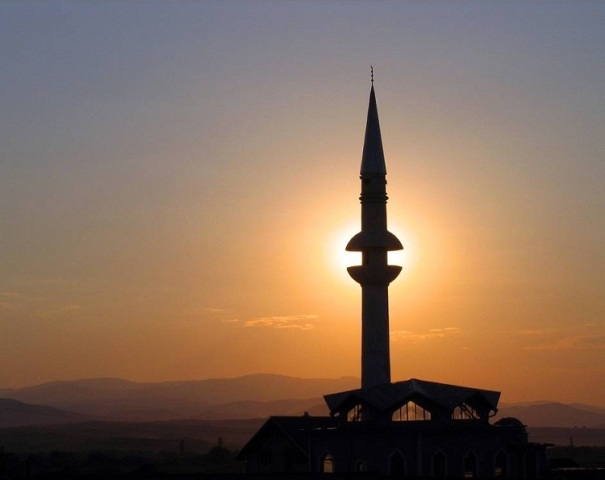Kosovo is the youngest country in the world and has many interesting facts to it. Navigate through this article to read some facts about Kosovo.
Facts About Kosovo
Kosovo is the newest nation of the 21st century, still struggling to be recognized in the world’s complex political and economic structure. It is a landlocked country in the South-Eastern part of Europe. The country of Kosovo is bordered by Serbia to the north and east, Macedonia to the south, Montenegro to the northwest and Albania to the Southwest. Kosovo has warm summers and cold and snowy winters because of its proximity to the Adriatic Sea to the west and mountain ranges to the east. The country is today governed by a government, which has complete control over the administration of the country. Kosovo is at present a member of many regional bodies such as the ‘Central European Free Trade Agreement’ and ‘Southeast European Co-operation Initiative’. This young country is recognised by over 60 countries including 22 EU member states. Kosovo is also a member of the ‘International Monetary Fund’ the ‘World Bank Group’, ‘International Development Association’ and the ‘International Finance Corporation’. However, due to the conditions that existed in 1990s, the country’s economic condition had worsened, and the infant nation required a lot of support from world organizations in order to reach a state of economic stability. Here are some other interesting facts about Kosovo for you.

Interesting Facts About Kosovo
-
Kosovo, the youngest country of the 21st century, declared independence from Serbia on February 17, 2008.
-
Kosovo was administered by the United Nations and NATO since 1999, when it was part of Yugoslavia.
-
The country of Kosovo was ruled by the Ottoman Empire till 1913 before getting segregated into Serbia and Montenegro.
-
Kosovo is in South East Europe and is not more than the size of the U.S state of Connecticut.
-
Prishtina is the capital of Kosovo.
-
“Kosovo”, the name if literally translated means ‘field of blackbirds’.
-
The independent country of Kosovo has 2.13 million people in an area of 10,887 sq.km.
-
The Euro is the official currency of Kosovo.
-
The estimated per capita GDP of the country is U.S. $ 1,409.
-
Albanians sum up for around 88% of Kosovo’s population, Serbs being the second largest ethnic group in the country. Other existing ethnic groups in the country are Bosniaks, Gorani, Roma, and Turks, as well as small communities of Ashkali and Egyptians.
-
Muslim and orthodox Christians are the two major religious groups in Kosovo.
-
The official language of the country is Albanian and Serbian. Bosnian, Turkish, Romani, and Croatian are also spoken widely. A large number of people also speak English, German, and other European languages.
-
Gjeravica is the highest peak in the country rising 8,714 feet above sea level.
-
The climate of the country is continental with warm summers and cold and snowy winters.
-
Poor economic policies, international sanctions, limited access to trade and finance, and the ethnic conflict in the 1990’s severely damaged the economic health of Kosovo. It is today one of the poorest economies of the world.
-
Kosovo has the highest birth rate in whole of Europe, adding up to the problem of unemployment in the country.
-
53% of Kosovians live below poverty line. Poverty is highest between the non-Serb minorities.
-
Education is also a problem in Kosovo due to insufficient funding and classroom space.
-
Health is also an issue in this new country. According to the recent ‘World Health Organization’ report, infant mortality is at 3.5 % and is higher than Kosovo’s neighbouring countries.
-
Kosovo has the highest morbidity rates in Europe in terms of diseases transmitted by water.
-
Lead, zinc, copper, silver, gold, brown coal, bauxite, lignite, nickel are some of the famous and easily available natural resources.
-
Agriculture, mining and micro-enterprises are the major industries prevailing in the country.
-
The most popular sports in the country are basketball, boxing, canoeing, chess, gymnastics, soccer, swimming and table tennis.
-
The country has given birth to a number of performers and artists like Melihate Ajeti (actress), Adekina Ismajli (singer), Shaban Gashi (photographer), Akil Mark Koci (composer), Esat Valla (painter).
See also
More from iloveindia.com
- Home Remedies | Ayurveda | Vastu | Yoga | Feng Shui | Tattoos | Fitness | Garden | Nutrition | Parenting | Bikes | Cars | Baby Care | Indian Weddings | Festivals | Party ideas | Horoscope 2015 | Pets | Finance | Figures of Speech | Hotels in India : Delhi | Hyderabad | Chennai | Mumbai | Kolkata | Bangalore | Ahmedabad | Jaipur
- Contact Us Careers Disclaimer Privacy Policy Advertise With Us Lifestyle Sitemap Copyright iloveindia.com. All Rights Reserved.







